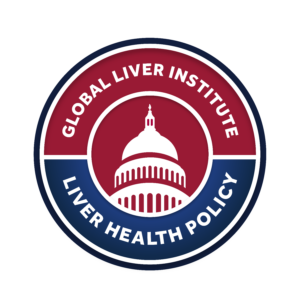
Congress has again averted a government shutdown through the passage of a Continuing Resolution (CR) for funding the government into early March 2024. Election year politics make bipartisanship essential to advancing key legislation in the House and Senate. The current administration will be looking to finalize program regulations and advance key administration priorities before the elections.
The government averted a shutdown, but work continues to advance FY 2024 appropriations bills to keep the government funded throughout the Fiscal Year.
The CR keeps certain elements of the U.S. government funded through early March, with federal health programs funded through March 8, 2024. Still, Congress will need to keep passing Continuing Resolutions or pass the Fiscal Year 2024 appropriations bills to continue averting a government shutdown. GLI continues to support funding levels reflected in the Senate appropriations bills, providing modest increases to key healthcare programs and activities and directing funds for a NAFLD/MASLD study. Please help by reaching out to your legislators!
GLI Celebrates DOJ Action under the ADA That Protects Care to Hepatitis C Patients
The US Justice Department (DOJ) and the Department of Health and Human Services (HHS) issued a joint letter to state Medicaid administrators urging, in accordance with the Americans with Disabilities Act, that their Medicaid programs allow people who have both hepatitis C and substance use disorder (SUD) to access life-saving HCV medications called direct-acting antivirals (known as DAAs). GLI has long advocated for the enforcement of policies against discrimination and applauds this action. As we seek to eradicate hepatitis C and prevent liver cancer in the US, no state should be using SUD as a reason to deny access to a life-saving medication for hepatitis C. View the DOJ press release, Harvard Center for Health Law and Policy Innovation press release and comments from GLI and others calling for the HHS Office for Civil Rights to advance a rulemaking that bars this kind of discrimination against people with HCV and SUD.
Victory for Patients: Copay Assistance Counts as Patient Cost Sharing
Last year, GLI and 29 advocacy organizations filed an amicus brief in support of a case challenging a rule that would allow health insurers to avoid counting the value of drug manufacturer copay assistance toward patients’ out-of-pocket cost obligations. GLI is excited to report that the U.S. Justice Department has moved to withdraw its appeal of the patient community’s victory last year, which struck down the 2021 HHS rule. The earlier 2020 rule is now in effect, requiring copay assistance to count as patient cost-sharing for prescription drugs, except for brand-name drugs with a generic equivalent.
CMS Acknowledges Need to Cover Obesity Treatments
GLI strongly supports efforts to convince CMS to cover obesity treatments. GLI applauds that CMS recently recognized scientific advancements in anti-obesity medications. As part of a recent proposal, CMS acknowledged that the Medicare Part D exclusion of drugs for anorexia, weight loss or weight gain is a barrier to coverage outside the Medicare program. GLI provided comments to CMS underscoring the relationship obesity has with other burdensome and costly conditions such as NAFLD/MASLD, and its advanced form, NASH/MASH. The Obesity Care Action Network, of which GLI is a member, also provided extensive comments urging CMS to recognize obesity as a complex and chronic disease and require QHPs to cover all evidence-based treatment services under the appropriate EHB categories. GLI also joined the National Hispanic Council on Aging letter urging Congressional action to cover obesity treatments. You can help by contacting your legislator!
GLI Supports the Medical Nutrition Equity Act
GLI is pleased to support the Medical Nutrition Equity Act (H.R. 6892), providing for the coverage of medically necessary food, vitamins, and individual amino acids for digestive and inherited metabolic disorders under Federal health programs and private health insurance, as well as ensuring State and Federal protection for existing coverage. Malabsorption due to liver or pancreatic disease is explicitly included in coverage under the bill’s provisions.
GLI Urges Reversal of Policies Obstructing Access to Endoscopies and Colonoscopies
GLI joined clinicians and 17 leading patient advocacy organizations in calling on UnitedHealthcare (UHC) to reverse its obstructive policies that threaten to disrupt its 27.4 million commercial beneficiaries’ access to virtually all endoscopies and colonoscopies. UHC’s Advance Notification Program lays the foundation for the implementation of UHC’s GI endoscopy “Gold Card” prior authorization program in early 2024. GLI is concerned that the program will require GI practices to spend hours providing UHC with data duplicative of what is already provided in claims forms, slowing access to patient care.
GLI Urges Improved Access to Colorectal Cancer Screenings
GLI and 90 medical societies and patient advocacy organizations have banded together to push federal agencies for improved access to life-saving colorectal cancer screenings, calling for the Departments of Health & Human Services, Labor, and Treasury to issue policy clarifications that ensure surveillance colonoscopies are covered as a preventive service under the Affordable Care Act.

